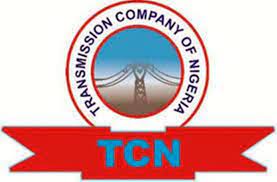Recently, the Federal Government focused attention on reawakening societal consciousness on the need to wash the hands always, this is even as Nigerians join the rest of the world to commemorate the 2020 Global Hand Washing Day. HELEN OJI reports.
To improved sanitation and hygiene has been on the global agenda over the years through the launching of programmes and initiatives such as the International Decade for Water Supply and Sanitation that Spanned through the period of 1981-1990, the Millennium Development Goals and the present Sustainable Development Goals (SDG 6- Sanitation for all). However, these efforts have not yielded the desire results as billions of people are still struggling to cope with consistent shortage of basic sanitation and hygiene facilities, especially in developing countries like ours. In this occasion in commemoration of the 2020 Global hand washing day. Every October 15th of every year has been set aside as global washing day to serve as a platform for raising global awareness on the importance of hand washing with soap. Fortunate enough, the most effective protection from this ravaging and devastating pandemic we are confronted with, is washing our hands with soap. This year’s theme “Hand Hygiene for ALL”.
Regular washing hands
According to the Minister of Environment, Dr. Mohammad Mahmood Abubakar said that the regular washing of hands keep us healthy and prevent the spread of respiratory and diarrheal infections from person to person.
“This is because hands serve as a vehicle for transmitting pathogens of respiratory infections, Faeco-oral diseases and Covid-19 virus. It has been reported that more than 3.5 million children in Nigeria suffer from diarrheal diseases” he added.
In his words: “Children who are less than 5 years old are more prone to such diseases due to lack of knowledge about the importance of hand washing and the simple act of washing hands with soap can reduce the infection percentage to 50 and also reduces any respiratory disease by 25%.
“Hand washing saves lives! Therefore, hands must be washed as much as practically possible, especially at critical moments such as: After using the Toilet, Coughing, Sneezing, Having contact with animals, Cleaning a child who has gone to the toilet, After changing diapers, touching surfaces, garbage, money As well as before, during and after preparing food, or eating and after caring for a sick person especially those vomiting or diarrhea.”
He further stated, “We all know that many people tend to wash their hands only with water, and for many Nigerians, cleaning hands with soap and water is not really considered necessary. Soaps are mostly reserved for laundry and bathing.
“Nigerians cleaning hands with soap under running water removes germs much more effectively, especially when the following steps are followed, Wet your hands with clean, running water, turn off the tap, and apply soap; Lather your hands by rubbing them together with soap. Lather the backs of your hands, between your fingers and under your nails; Scrub your hands for at least 20 seconds; Rinse your hands well under clean running water; and dry your hands using a clean towel or air dry them.”
Safeguard public health
Specifically, Sanitation and Hygiene. challenges in the country is a necessary and worthwhile investment for government at every level. This is because for every N100 spent improving sanitation and hygiene, between N300 and N400 is saved which can be invested in health, education, social and economic development. Access to Sanitation and Hygiene is not only a fundamental human right that safeguards public health and human dignity but also an essential need when it comes to disease prevention.
He called Nigerians especially those in places of authority public and private to ensure adequate provision for sanitation and hygiene including hand washing facilities at all times.
“The federal government through the Federal Ministry of Environment has made several efforts towards the delivery of sanitation and hygiene mandates to the Nigerian citizenry. The Ministry in collaboration with stakeholders is reviewing the 2005 National Environmental Sanitation Policy and its implementation Guidelines to meet the present emerging and re-emerging sanitation challenges, has developed National Solid Waste Management Policy, which was recently approved by the Federal Executive Council, and is currently reviewing its regulatory documents for improved service delivery on sanitation and hygiene through the National Environmental Standards and Regulations Enforcement Agency (NESREA).
“In response to COVID- 19 pandemic, Our Ministry has carried out disinfection and decontamination of over 200 public and private premises across the country. The Minister have also directed the Environmental Health Officers in the ministry and those in the states and LGAs to commence an environmental health surveillance of all MDAs, schools and other public places and ensure compliance to COVID-19 guidelines and protocols especially in the areas of provision of hand washing facilities, use of hand sanitizers, face masks etc.
The Minister stressed that when we fail to wash our hands or do so incorrectly, we spread germs to other people, but proper hand washing breaks the transmission chain of diseases. On this basis.
He urges every Nigerian to be a vanguard of this year Hand Wash Campaign ‘HAND HYGIENE FOR ALL’ because it is by so doing that we can derive maximum benefits from our developmental efforts.
The Minister also handover some hand washing facilities to the following Unity Schools in the FCT, Federal Government College Apo, Federal Government College Bwari, Federal Science and Technical college Orozo, Federal Government Girls college Kwali.




